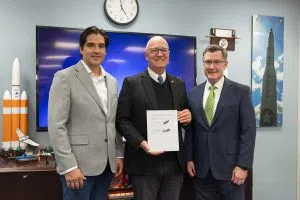 (KNOX) – State School Superintendent Kirsten Baesler is asking North Dakotans to review and comment about a new state process for assisting schools whose students have lagged academically for three years or more.
(KNOX) – State School Superintendent Kirsten Baesler is asking North Dakotans to review and comment about a new state process for assisting schools whose students have lagged academically for three years or more.
The process, called ND FIRST (Fostering Improved Results for School Transformation), was authorized by Senate Bill 2254, which the Legislature approved in April 2023. It gives the Department of Public Instruction authority to closely supervise underperforming schools that need “comprehensive support and improvement,” which are identified as those in the bottom 5 percent of performance benchmarks for at least three years.
Other states allow state intervention into the operations of underperforming local schools, but North Dakota lawmakers have been reluctant to take that step. During the 2023 Legislature, critics of SB2254 argued the bill would expand state power and undermine local control of schools. The bill’s supporters contended the legislation would help students and promote accountability, and the House and Senate both endorsed it overwhelmingly.
“The objective of this process is to provide comprehensive assistance to schools that have been underperforming for years. We need to take steps to help these schools and make sure our students receive the education they deserve,” Baesler said. “Our students, our families, and our taxpayers deserve better.”
Since the legislation was approved, the Department of Public Instruction has been consulting with education leaders and stakeholders and soliciting comment about its implementation.
Amanda Peterson, the agency’s director of educational improvement and support, said additional public comment is welcome. The NDDPI’s website has a form for commenters to use to provide their opinions. The form refers to materials posted on the agency’s ND FIRST web page that give details about the process.
To implement the bill, the NDDPI will develop agreements with affected schools. These will include analyses of previous improvement efforts and a blueprint for future expectations. The agreements, which are called “memorandums of understanding” or MOUs, will be drafted with the help of data and the opinions of school district teachers and administrators, the school board, and community members.
North Dakota’s current group of “CSI schools” were identified in September 2022. Any new state agreements with schools needing comprehensive support and improvement for a second consecutive three-year cycle would take effect in August 2025.
If the Department of Public Instruction determines that any of the current CSI schools still require comprehensive support and improvement, the legislation gives Baesler authority to supervise them more closely. She may order spending revisions and changes to school operations and personnel.
The superintendent is required to make annual reports about those changes to the Legislature’s education committees and the Board of Public School Education. Most recently, Peterson briefed the Legislature’s interim Education Committee about the steps taken to implement the new law.










